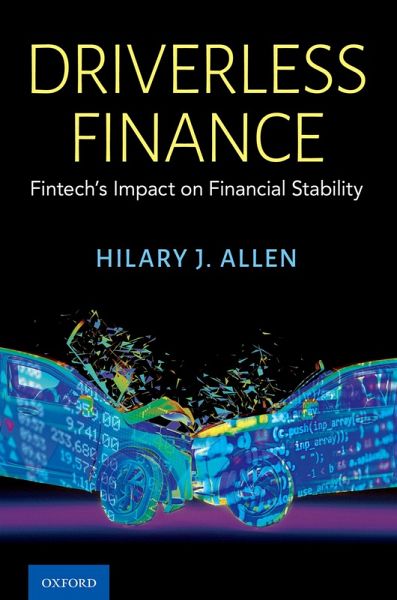
Driverless Finance (eBook, ePUB)
Fintech's Impact on Financial Stability
Versandkostenfrei!
Sofort per Download lieferbar
26,95 €
inkl. MwSt.
Weitere Ausgaben:

PAYBACK Punkte
13 °P sammeln!
Everyone is talking about fintech, and they're usually saying good things. Driverless Finance provides a balance to that conversation, exploring the threats that different fintech innovations pose for our financial system. With in-depth and accessible descriptions of new financial technologies and business models - ranging from distributed ledgers to machine learning, cryptoassets to robo-investing - this book allows readers to think more critically about fintech, and about how the law should respond to it. This book highlights the increased speed, complexity, and coordination inherent in new ...
Everyone is talking about fintech, and they're usually saying good things. Driverless Finance provides a balance to that conversation, exploring the threats that different fintech innovations pose for our financial system. With in-depth and accessible descriptions of new financial technologies and business models - ranging from distributed ledgers to machine learning, cryptoassets to robo-investing - this book allows readers to think more critically about fintech, and about how the law should respond to it. This book highlights the increased speed, complexity, and coordination inherent in new fintech innovations, and illustrates how these features could come together in a massive financial system failure. It makes the case for a precautionary approach to regulating fintech, erring on the side of caution to avoid a financial crisis that could have irreversible and catastrophic effects for our society. Because neither longstanding regulatory approaches nor experimental new approaches like regulatory sandboxes were designed to address fintech's systemic risks, this book makes several bold new proposals for regulation designed to make fintech-inspired financial crises less likely. These proposals include new forms of disclosure and supervision, new forms of technological tools (known as suptech), and a new licensing regime for financial technologies. This book finishes by situating its discussion of fintech and financial stability in the context of important debates about innovation, expertise, cybersecurity, privacy, competition, and other pressing issues.
Dieser Download kann aus rechtlichen Gründen nur mit Rechnungsadresse in A, B, BG, CY, CZ, D, DK, EW, E, FIN, F, GR, HR, H, IRL, I, LT, L, LR, M, NL, PL, P, R, S, SLO, SK ausgeliefert werden.













